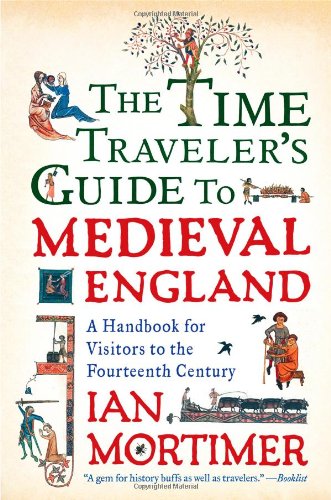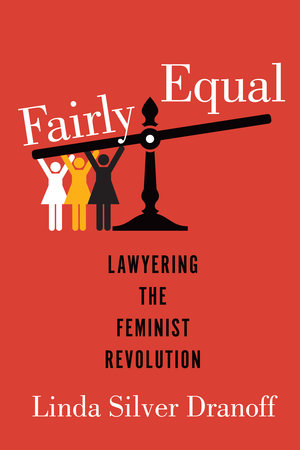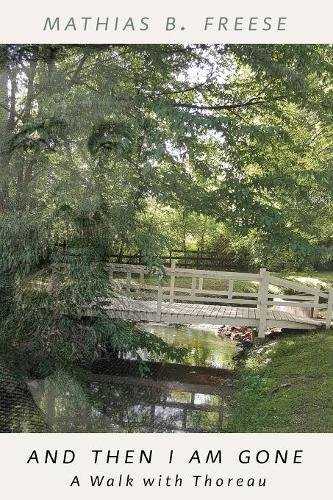
As a self-professed “agnostic protestant”, Norwich claims he has “no axe to grind”; he steers clear of theology and achieves a style which is anecdotal, witty, and irreverent. A story less sacred than profane, he relishes with morbid fascination the unpleasant details of the institution’s sinners, while displaying undisguised admiration for its saints.
Tag: nonfiction
Time Traveller’s Guide to Elizabethan England by Ian Mortimer
 If you want to fit in, to know the dos and don’ts, and to understand the cultural oddities, you’ll need a copy of Ian Mortimer’s Time Traveller’s Guide. In it, he paints a living, breathing picture of the sickness and the suffering, the power and the glory that was Elizabethan England, and tells you everything you’ll need to know to survive in their world. When you arrive, you’ll find that your “ancestors are not inferior to [you]; they do not lack sophistication, subtlety, innovation, wit or courage”.
If you want to fit in, to know the dos and don’ts, and to understand the cultural oddities, you’ll need a copy of Ian Mortimer’s Time Traveller’s Guide. In it, he paints a living, breathing picture of the sickness and the suffering, the power and the glory that was Elizabethan England, and tells you everything you’ll need to know to survive in their world. When you arrive, you’ll find that your “ancestors are not inferior to [you]; they do not lack sophistication, subtlety, innovation, wit or courage”.
A Review of Fire Road by Kim Phuc Phan Thi
 A person who has experienced deep tragedy and lived to tell the story often comes to grips with profound truths along the way. Such is the case with Phan Thi. As she started her recovery, she had to endure daily baths to treat her burns. She says, “Those baths were worse than death itself. Dying is far worse than death.” As I’ve observed this with people I know in my own life, I know this is a profound truth.
A person who has experienced deep tragedy and lived to tell the story often comes to grips with profound truths along the way. Such is the case with Phan Thi. As she started her recovery, she had to endure daily baths to treat her burns. She says, “Those baths were worse than death itself. Dying is far worse than death.” As I’ve observed this with people I know in my own life, I know this is a profound truth.
A review of A Way Out by Michelle Balge
 It follows that A Way Out does not hesitate to divulge its author’s most intimate secrets in her long battle with depression and social anxiety. Such honesty and candour lays bare an individual life in ways that illuminate our own experiences of mental illness: in speaking of herself, she speaks of us all.
It follows that A Way Out does not hesitate to divulge its author’s most intimate secrets in her long battle with depression and social anxiety. Such honesty and candour lays bare an individual life in ways that illuminate our own experiences of mental illness: in speaking of herself, she speaks of us all.
A review of Thrive Through Yoga by Nicola Jane Hobbs
 There are plenty of yoga guides out there, and a very confusing set of different yoga styles and philosophies, but Nicola Jane Hobbs’ presents a particularly compelling approach that transcends style and focuses on practical application. For one thing, she’s seriously charismatic, demonstrating each pose with grace and clarity, and very openly using her own personal story of anorexia, OCD, depression and anxiety in order to provide real empathy and connection. For another, she’s not just another charismatic young ‘influencer’. Hobbs has serious qualifications in Yoga, Psychology, and Nutrition, and has clocked up many hours of experience which are put to good use in this very readable book.
There are plenty of yoga guides out there, and a very confusing set of different yoga styles and philosophies, but Nicola Jane Hobbs’ presents a particularly compelling approach that transcends style and focuses on practical application. For one thing, she’s seriously charismatic, demonstrating each pose with grace and clarity, and very openly using her own personal story of anorexia, OCD, depression and anxiety in order to provide real empathy and connection. For another, she’s not just another charismatic young ‘influencer’. Hobbs has serious qualifications in Yoga, Psychology, and Nutrition, and has clocked up many hours of experience which are put to good use in this very readable book.
A review of Deliverance by Miantae Metcalf McConnell
 The lives of forgotten, marginalized persons – among them, people of other ethnicities to our own, and women – are in desperate need of recuperation. Many of those lives are fascinating, enlightening and inspiring, but if we seek deliberately to make them inspiring from our own positions of power and privilege, then we do them a grave disservice and perpetuate the historical imbalances that marginalized them in the first place.
The lives of forgotten, marginalized persons – among them, people of other ethnicities to our own, and women – are in desperate need of recuperation. Many of those lives are fascinating, enlightening and inspiring, but if we seek deliberately to make them inspiring from our own positions of power and privilege, then we do them a grave disservice and perpetuate the historical imbalances that marginalized them in the first place.
A review of Minimalism by Joshua Fields Millburn and Ryan Nicodemus
 Millburn and Nicodemus used their own discontent as a springboard to identifying the things that were ‘anchoring’ them or holding them back from finding meaning in their lives. This included the big mortgage payments that came with the expensive houses, unhealthy relationships, car payments, debts, continual spending and the high pressure careers with long hours that were required to keep the cycle going.
Millburn and Nicodemus used their own discontent as a springboard to identifying the things that were ‘anchoring’ them or holding them back from finding meaning in their lives. This included the big mortgage payments that came with the expensive houses, unhealthy relationships, car payments, debts, continual spending and the high pressure careers with long hours that were required to keep the cycle going.
A review of Scorn by Matthew Parris
 Not only does this book deliver 432 pages of compressed and valuable entertainment, it releases a multitude of ready responses that if rehearsed well, will provide a source of heavy artillery for any form of social intercourse within societies’ boundaries. This is also a vernacular most Australians accept as dinkum.
Not only does this book deliver 432 pages of compressed and valuable entertainment, it releases a multitude of ready responses that if rehearsed well, will provide a source of heavy artillery for any form of social intercourse within societies’ boundaries. This is also a vernacular most Australians accept as dinkum.
A review of Fairly Equal: Lawyering the Feminist Revolution by Linda Silver Dranoff
 As part of the “second wave” women’s movement, Ms Silver Dranoff has helped elevate Canadian women from second class citizenship to a position that is “fairly equal” to men – although there is still more to be done.
As part of the “second wave” women’s movement, Ms Silver Dranoff has helped elevate Canadian women from second class citizenship to a position that is “fairly equal” to men – although there is still more to be done.
A review of And Then I Am Gone by Mathias B Freese
 Not only do Freese and I concur on how a psychotherapist best engages with a client, but our approach to writing books also bisects. I too write to try to understand myself, indeed without outlines or a rigid plot structure. I daresay he would nod eagerly in understanding that your characters, given the chance, tell the story for you if you’ll listen to them, and in a more honest, exciting way.
Not only do Freese and I concur on how a psychotherapist best engages with a client, but our approach to writing books also bisects. I too write to try to understand myself, indeed without outlines or a rigid plot structure. I daresay he would nod eagerly in understanding that your characters, given the chance, tell the story for you if you’ll listen to them, and in a more honest, exciting way.